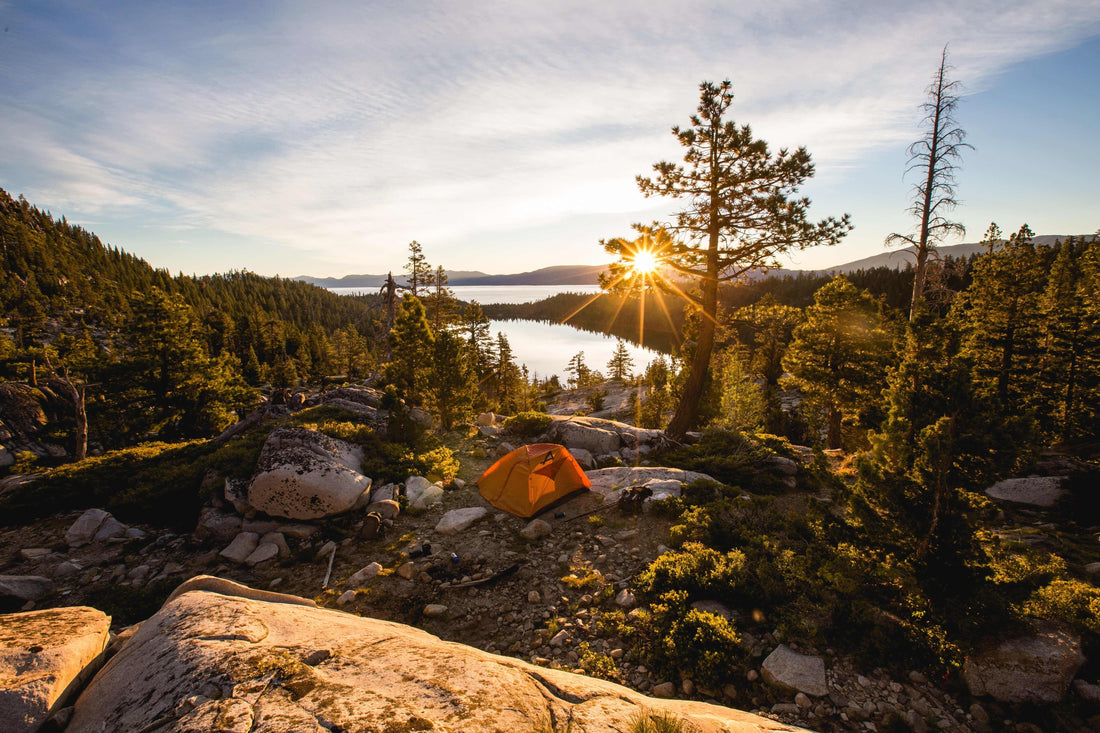
Leave No Trace: 7 Principles for Responsible Outdoor Enjoyment
Share
The 7 Principles of Leave No Trace are a straightforward set of guidelines designed to minimise environmental impact when enjoying the outdoors. They are relevant in various environments, from wilderness areas to local parks and even your backyard. Each principle offers detailed guidance on how to reduce environmental impact in specific ways. While these principles are well-established, they are regularly reviewed and updated based on input from biologists, land managers, and outdoor education experts to ensure their continued relevance and effectiveness.
Principle 1: Plan Ahead and Prepare
Remember to plan ahead and prepare when heading outdoors. This will help you achieve your trip goals safely and responsibly, while also minimising any negative impact on the environment. Here are some basics to keep in mind:
- Familiarise yourself with the regulations and specific concerns of the area you plan to visit.
- Be ready for any extreme weather, hazards, or emergencies that may arise.
- Try to schedule your trip during times of lower visitor activity to avoid overcrowding.
- Opt for smaller groups rather than large parties, and consider repackaging food to reduce waste.
- Use a map and compass for navigation to avoid the need for rock cairns, flagging, or marking paint.
Principle 2: Travel & Camp on Durable Surfaces
The purpose of outdoor travel is to move through natural areas while minimising harm to the environment. Understanding the impact of travel is essential to achieve this goal. Damage occurs when vegetation or organisms are trampled, leading to soil erosion and undesirable trails. Responsible camping on durable surfaces can help reduce our impact on outdoor spaces.
The Basics:
- It's important to stick to durable surfaces such as well-worn trails, established campsites, rock, gravel, dry grasses, or snow.
- When camping, make sure to stay at least 200 feet away from lakes and streams to protect riparian areas.
- Instead of altering a site, focus on finding good campsites that are already available.
In popular areas:
- When in crowded areas, it's important to stay on designated trails and campsites.
- Walk in a single file down the middle of the trail, even in wet or muddy conditions.
- Make sure to keep campsites small and avoid activities in areas with vegetation.
In undisturbed areas:
- Spread out your usage to minimise the impact on the environment and avoid creating new campsites and trails.
- Choose places where you can't see the environment being harmed to lessen your impact on nature.
Principle 3: Dispose of Waste Properly
When you're outdoors, the waste you create can be harmful if not handled properly. It's important to plan for the different types of waste you'll have and to know the right way to get rid of each type of waste where you are. Leave No Trace reminds outdoor enthusiasts to think about how their actions affect others, the environment, and wildlife.
The Basics:
- Pack out all trash, leftover food, and litter and inspect your campsite and rest areas for any waste or spilt food. Avoid burning trash.
- Deposit solid human waste in catholes dug 6-8 inches deep at least 200 feet from water sources, camp areas, and trails. Cover and disguise the cathole when finished.
- Bury toilet paper deep in a cathole or pack the toilet paper out along with hygiene products.
- Remember to carry water 200 feet away from water sources to wash with biodegradable soap and dispose of dishwater away from streams or lakes.
Principle 4: Leave What You Find
Remember to leave natural items where you find them to preserve the ecosystem and allow others to discover them. This includes rocks, plants, archaeological artefacts, and other objects of interest.
The Basics:
- Preserve the past: observe cultural or historic structures and artefacts, but do not touch them.
- Leave rocks, plants, and other natural objects as you find them.
- Avoid introducing or transporting non-native species.
- Do not build structures, furniture, or dig trenches.
Principle 5: Minimise Campfire Impacts
Campfires have a long history, but they can cause problems. Many people enjoy having a campfire, but they can harm the environment. Human activity is the main reason for dangerous wildfires. It's important to be mindful of the impact of campfires.
The Basics:
- Campfires can have long-term negative effects on the environment. Consider using a lightweight stove for cooking and a candle lantern for light.
- Use established fire rings, pans, or mound fires where fires are permitted.
- Keep fires small. Use only sticks from the ground that can be broken by hand.
- Burn all wood and coals to ash, put out campfires completely, then scatter cool ashes.
Principle 6: Respect Wildlife
When venturing outdoors, let's strive to minimise our impact on the natural habitat and its inhabitants. By showing consideration for wildlife, we can contribute to the well-being of the ecosystem and promote positive interactions between humans and animals.
The Basics:
- Enjoy observing wildlife from a distance. Remember not to follow or approach them for their safety and yours.
- Remember, it's best to refrain from feeding animals. When we feed wildlife, it can harm their health, disrupt their natural behaviours, and put them at risk from predators and other hazards.
- Always keep your pets under control or leave them at home.
- Be mindful of wildlife during important times: mating, nesting, raising young, or winter hibernation.
Principle 7: Be Considerate Of Others
Maintaining courtesy in the outdoors is crucial for everyone's enjoyment. Excessive noise, uncontrolled pets, and damaged surroundings diminish the natural appeal. Consideration for others ensures that everyone can enjoy nature.
The Basics:
- Let's make sure we respect others and make their experience the best it can be.
- Be kind and considerate. Let others enjoy the trail by yielding to them.
- Greet riders and ask which side of the trail to move to when encountering pack stock.
- Remember to take breaks and camp away from trails and other people.
- Let the sounds of nature take over. Avoid speaking loudly and making unnecessary noise.
Conclusion
The principles were established by the Leave No Trace Center for Outdoor Ethics in the mid-1980s with the help of the US Forest Service, National Park Service, and Bureau of Land Management. This collaboration continues today and is based on scientific research in the fields of recreation ecology and human dimensions of natural resources.
